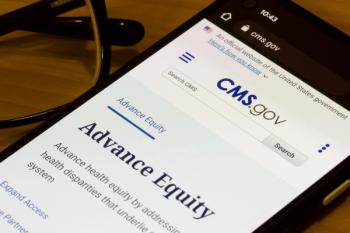
Health Care Cost
Latest News

Latest Videos

CME Content
More News

Physician reimbursement stands to be affected by the consolidation of medical systems and changes in Medicare enrollment affecting their pay, which may lead to shifts in medical training and hiring.

Results demonstrated the mean total medical costs per patient per year decreased significantly after patients began semaglutide treatment.

Reduced well-being and loss of productivity were contributors to the high economic burden in patients with late-stage age-related macular degeneration (AMD) living in the US, Germany, and Bulgaria.

As Cigna and Humana pick back up on the potential for a megamerger, executives will be keeping a close eye on the outcomes of the presidential election.

The US could start catching up to Europe on biosimilars if the FDA removed the need for switching studies to be granted interchangeability.

Private negotiated facility fees at hospitals are on average double the ambulatory surgery center facility fees for common outpatient procedures.

Financial toxicity is a burden many patients and their families unfortunately are forced to shoulder, leading some to delay or skip care and incur bills related to their care that they lack the financial capacity to pay off.

As presidential candidates Kamala Harris and Donald Trump diverge on health care reform paths, contrasting futures hinge on the outcome of the presidential election.

New legislation would clarify rules around value-based contracts in Medicaid, and a new model is expanding access to gene therapies, explained Adam Colborn, JD, of AMCP.

This week’s Center on Health Equity & Access highlights emphasize the role of social determinants of health in policy-making and underscore the importance of addressing rising costs and challenges employers face.

As health care costs escalate, a new survey reveals that 74% of employers are grappling with the impact on employee wages and benefits, with many anticipating further cost-shifting to their workforce.

In the wake of the Inflation Reduction Act and other regulatory changes, Medicare Advantage plans have braced for significant cuts that are forcing them to take a hard look at their product offering.

Report reveals growing divide between subsidized and unsubsidized enrollees.

Program yields largest savings in its history of more than $2.1 billion in 2023.

As health care moves toward a value-based payment model, the pharmacy benefit is going in the opposite direction, one that places unit cost over clinical appropriateness.

Patients with Medicare coverage and whose incomes fall between 100% and 400% or less of the federal poverty level may find themselves in a tricky financial situation concerning their ability to pay the Medicare Part A hospital deductible.

Prior authorizations (PA) have been the subject of much scrutiny as of late through research demonstrating subsequent limited access to care in the aftermath of PA denials from use of artificial intelligence (AI) technologies.

Cost avoidance varied by clinical setting, with the largest savings occurring in hematology clinics ($73,773), followed by rheumatology ($45,330) and pediatric gastrointestinal/irritable bowel syndrome ($16,519).

Stuart Staggs, vice president of transformation and shared services at McKesson, explained that oncology practices in the Enhancing Oncology Model (EOM) have a tough job driving down costs when drug costs make up a larger portion of the total cost of care.

The Center on Health Equity & Access focuses on addressing disparities in health care access, exploring innovative solutions, policies, and research to improve health equity across diverse populations.

As National Breast Cancer Awareness Month comes to a close, here are 5 things to note about the prospect of preventive mastectomies for individuals with a high-risk of developing breast cancer.

The Medicaid budget survey for fiscal years 2024 and 2025 revealed state predictions are expecting a decline in Medicaid enrollment and an increase in spending next year due to the end of pandemic-era policies and federal funding.

At the regional Institute for Value-Based Medicine® event in Boston, Vinayak Venkataraman, MD, medical oncologist at Dana-Farber Cancer Institute and Harvard Medical School, was a panelist for the discussion, “Recent Advancements in Identifying Predictive Biomarkers for Sarcomas."

Of the 10% of women contacted for this survey who said that they or their partner had ever sought fertility assistance, only 7% were able to get the necessary care; cost was cited as the top reason for not being able to access fertility services.

Medicaid expansion is associated with improved care and increased survival rates for patients with certain breast cancers, but future studies should focus on whether Medicaid expansion mitigates the disparities between Black and non-White patients.


















